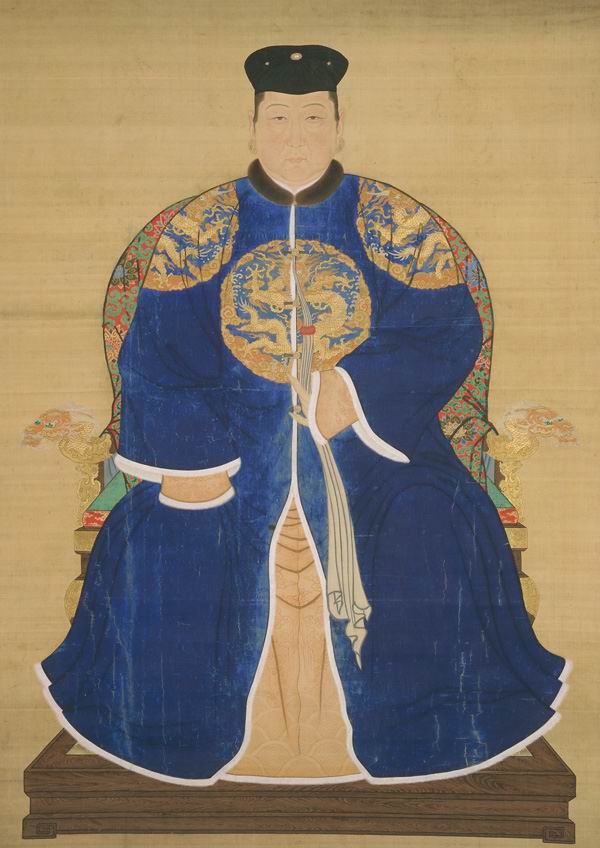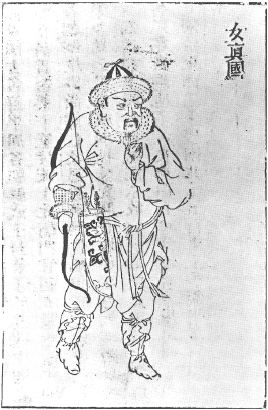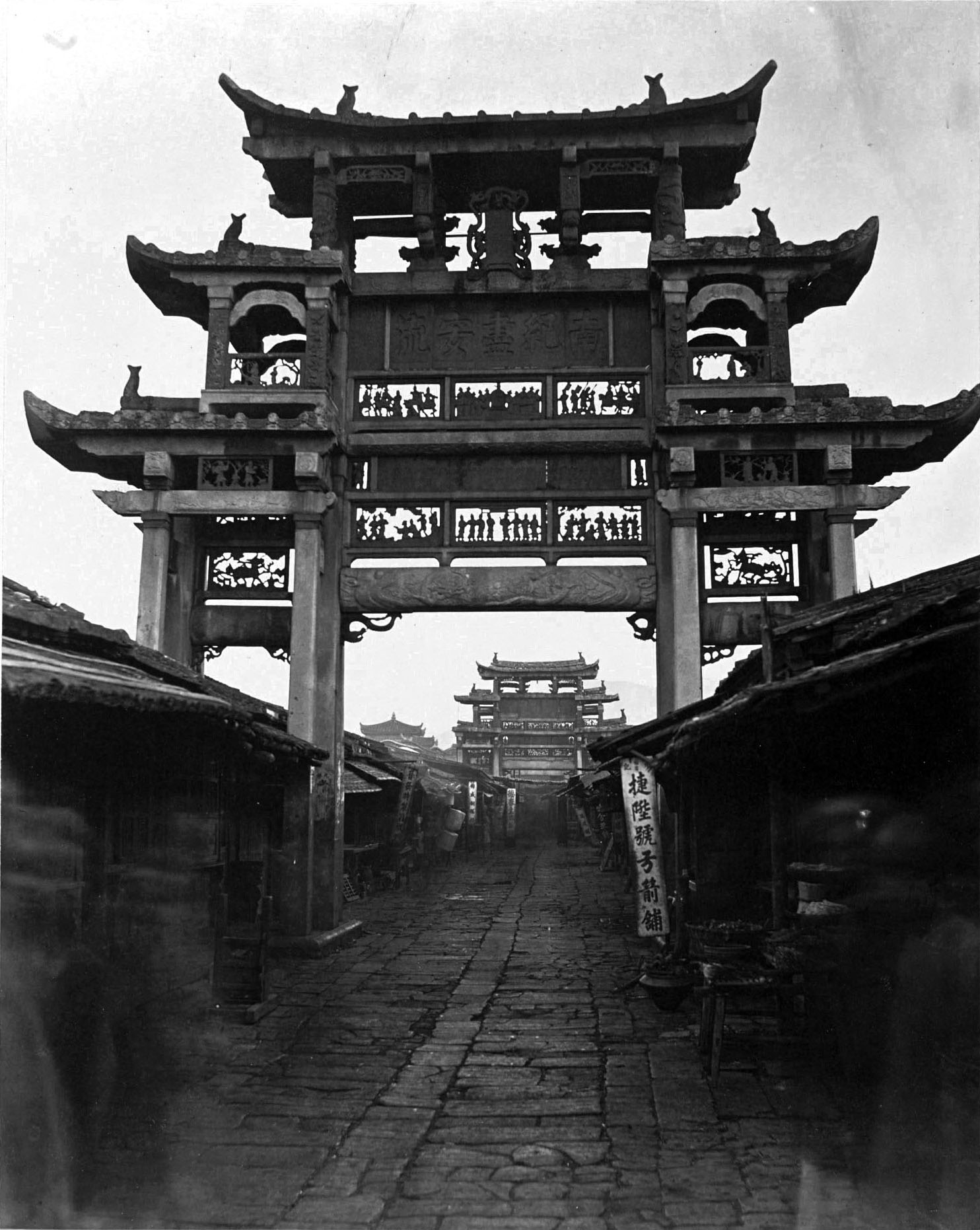|
Kangxi Dynasty
''Kangxi Dynasty'' is a 2001 Chinese television series based on the novel ''Kangxi Da Di'' (康熙大帝; ''The Great Kangxi Emperor'') by Eryue He. The series is a prequel to the 1997 television series ''Yongzheng Dynasty'', and was followed by ''Qianlong Dynasty'' in 2002. Plot The series focuses on the major events which occurred during the reign of the Kangxi Emperor in the Qing dynasty. These include the power struggle with Oboi, the Revolt of the Three Feudatories, and the campaign against the Kingdom of Tungning. Cast * Chen Daoming as the Kangxi Emperor ** Li Nan as the Kangxi Emperor (teenager) ** Chen Weizhen as the Kangxi Emperor (child) * Siqin Gaowa as Empress Dowager Xiaozhuang * Gao Lancun as Mingzhu * Xue Zhongrui as Songgotu * Li Jianqun as Consort Rong * Ru Ping as Sumalagu ** Hu Shanshan as Sumalagu (young) * Hu Tiange as Lanqi'er * Liao Jingsheng as Li Guangdi * An Yaping as Wei Dongting ** Liu Ting as Wei Dongting (young) * Li Hongtao as Galdan Boshugtu Khan ... [...More Info...] [...Related Items...] OR: [Wikipedia] [Google] [Baidu] |
Eryue He
Ling Jiefang (; 3 November 1945 – 15 December 2018), better known by his pen name Eryue He (), was a Chinese historical fiction writer. He is best known for writing biographical novels of three Qing dynasty emperors (Kangxi, Yongzheng and Qianlong), all of which have been adapted into award-winning television series. He was the dean of College of Liberal Arts of Zhengzhou University. He was a delegate to the 12th National People's Congress and the 18th National Congress of the Communist Party of China. He was a member of the China Writers Association. Biography Ling was born in Xiyang County, Shanxi. His father Ling Erwen () was the director of CPC Xiyang Committee. His mother Ma Cuilan () was the chairwoman of CPC Xiyang Women's Federation. He moved to Nanyang, Henan, and settled there with his parents. He graduated from Nanyang No. 3 High School. He served in the People's Liberation Army for ten years from 1968 to 1978. In 1978 he became an official in the Propaganda Depart ... [...More Info...] [...Related Items...] OR: [Wikipedia] [Google] [Baidu] |
Sumalagu
Sumalagu (; originally Sumal, in Manchu ; 1615 – 24 October 1705) was a palace attendant of the Qing dynasty. She was a close confidante of Empress Dowager Xiaozhuang during the reign of the Shunzhi Emperor. Empress Dowager Xiaozhuang called her " Gege", a title reserved for only imperial princesses. She acted as the messenger between prince Shizu and his mother during the reign of Dorgon. Upon the wish of the empress dowager, she escorted empress Borjigit incognito to receive medical treatment by the Jesuit Adam Schall von Bell. Sumalagu taught the young Kangxi Emperor the Manchu language while he was under her care. She was a supporter of the Kangxi Emperor when he asserted his power against the power base of Oboi in 1667–69.Lily Xiao Hong Lee, Sue Wiles: Biographical Dictionary of Chinese Women: v. 1: The Qing Period, 1644-1911' In 1687, she was given the responsibility of looking after Yuntao Aisin Gioro Yuntao (; 18 January 1686 - 1 September 1763) was a Qing dynasty ... [...More Info...] [...Related Items...] OR: [Wikipedia] [Google] [Baidu] |
Zhu Guozhi , known as ZHU
{{disambiguation ...
Zhu or ZHU may refer to: *Zhu (surname), common Chinese surnames *Zhu River, or Pearl River, in southern China *Zhu (state), ancient Chinese state, later renamed Zou *House of Zhu, the ruling house of the Ming dynasty in Chinese history *Zhu (string instrument), ancient Chinese string instrument *Zhu (percussion instrument), ancient Chinese percussion instrument *Zhu (musician), an American electronic music artist *Zhuhai Jinwan Airport - ZHU is the 3 letter IATA code for the airport *Zhu languages *Houston Air Route Traffic Control Center Houston Air Route Traffic Control Center (ZHU) is located at George Bush Intercontinental Airport at 16600 JFK Boulevard, Houston, Texas, United States 77032. The Houston ARTCC is one of 22 Air Route Traffic Control Centers in the United States. ... [...More Info...] [...Related Items...] OR: [Wikipedia] [Google] [Baidu] |
Ebilun
Ebilun (Manchu:, Mölendroff: ebilun; ; died 1673) was a Manchu noble and warrior of the Niohuru clan, most famous for being one of the Four Regents assisting the young Kangxi Emperor from 1661 to 1667, during the early Qing dynasty (1644–1912). A largely passive figure during the regency, Ebilun was disgraced following the ouster of the far more powerful regent Oboi and considered a political supporter of the latter. He was stripped of his positions by the emperor but later regained his noble rank. Many of his descendants became influential figures in the Qing imperial government. Biography Ebilun was from the Niohuru clan, which lived north of the Korean border and belonged to the Bordered Yellow Banner. He was the youngest of the sixteen sons of Eidu (1562–1621), who had been a close associate of Manchu patriarch Nurhaci. Ebilun's mother was herself a sister (or according to some sources, a cousin) of Nurhaci. In 1634, the second Qing emperor Hong Taiji (r. 1626–1643) g ... [...More Info...] [...Related Items...] OR: [Wikipedia] [Google] [Baidu] |
Yinreng
Yunreng (6 June 1674 – 27 January 1725), born Yinreng, was a Manchu prince of the Qing dynasty. He was the second among the Kangxi Emperor's sons to survive into adulthood and was designated as Crown Prince for two terms between 1675 and 1712 before being deposed. He was posthumously honoured as Prince Limi of the First Rank. Biography Yunreng was born of the Manchu Aisin Gioro clan as the seventh son of the Kangxi Emperor, but was the second among the emperor's sons to survive into adulthood. He was given the infant name "Baocheng" (保成), and was renamed "Yinreng" when he became older. His mother was the Kangxi Emperor's first empress, Empress Xiaochengren from the Hešeri Hešeri (Chinese: 赫舍里; Pinyin: Hesheli; Manchu: ''Hešeri''), is a clan of Manchu nobility with Jianzhou Jurchens roots, originally hailing from the area which is now the modern Chinese provinces of Jilin and Liaoning. It was once one of t ... clan, who was also a granddaughter of Hešeri S ... [...More Info...] [...Related Items...] OR: [Wikipedia] [Google] [Baidu] |
Yinzhi, Prince Zhi
Yinzhi (12 March 1672 – 7 January 1735), also known as Yunzhi, formally known as Prince Zhi of the Second Rank between 1698 and 1708, was a Manchu prince of the Qing dynasty. Life Yinzhi was born in the Aisin Gioro clan as the fifth son of the Kangxi Emperor. His mother was Consort Hui (惠妃) from the Yehe Nara (葉赫那拉) clan as well as a relative of the eminent official, Mingju. As the Kangxi Emperor's first four sons died prematurely, and Yinzhi was the emperor's eldest son to survive into adulthood, he was designated by his father as "First Prince" (大阿哥). In 1698, he was granted a ''junwang'' (second-rank prince) title as " Prince Zhi of the Second Rank" (多羅直郡王). Yinzhi participated in the Qing Empire's campaign against Galdan Boshugtu Khan of the Zunghar Khanate. In 1708, the Kangxi Emperor removed Yinreng from his position as Crown Prince. The emperor regarded Yinzhi highly so he placed Yinreng under Yinzhi's custody. Yinzhi had long harboured th ... [...More Info...] [...Related Items...] OR: [Wikipedia] [Google] [Baidu] |
Hešeri Sonin
Soni (1601–1667), also known as Sonin, and rarely Sony ( mnc, ; ), was a Manchu noble of the Hešeri clan who served as one of the Four Regents of the Kangxi Emperor (r. 1661–1722) during the Qing dynasty (1644–1912). His clan belonged to the Plain Yellow Banner. Early life Soni's father Šose (Chinese: Shuose 硕色) and uncle Hife (Xifu 希福), who were both fluent in Mandarin, Mongolian and Manchu, served as high officials under Manchu patriarch Nurhaci (1559–1626). Like them, Soni was valued for his linguistic abilities. In 1628, under Nurhaci's successor Hong Taiji (1592–1643), Soni led a successful diplomatic mission to convince the recently surrendered Khorchin Mongols to honor their pledge to help the Manchus militarily. In 1629 he was named to the newly created "Literary Office" (Chinese: ''wenguan'' 文館), an institution that kept a detailed record of Manchu history and translated Chinese books about statecraft and Chinese and Korean state documents into ... [...More Info...] [...Related Items...] OR: [Wikipedia] [Google] [Baidu] |
Shunzhi Emperor
The Shunzhi Emperor (15 March 1638 – 5 February 1661) was the second Emperor of China, emperor of the Qing dynasty of China, and the first Qing emperor to rule over China proper, reigning from 1644 to 1661. A Deliberative Council of Princes and Ministers, committee of Manchu princes chose him to succeed his father, Hong Taiji (1592–1643), in September 1643, when he was five years old. The princes also appointed two co-regents: Dorgon (1612–1650), the 14th son of the Qing dynasty's founder Nurhaci (1559–1626), and Jirgalang (1599–1655), one of Nurhaci's nephews, both of whom were members of the Aisin Gioro, Qing imperial clan. From 1643 to 1650, political power lay mostly in the hands of Dorgon. Under his leadership, the Qing Empire conquered most of the territory of the fallen Ming dynasty (1368–1644), chased Southern Ming, Ming loyalist regimes deep into the southwestern provinces, and established the basis of Qing rule over China proper despite highly unpopular ... [...More Info...] [...Related Items...] OR: [Wikipedia] [Google] [Baidu] |
Shi Lang
Shi Lang (1621–1696), Marquis Jinghai, also known as Secoe or Sego, was a Chinese admiral who served under the Ming and Qing dynasties in the 17th century. He was the commander-in-chief of the Qing fleets which destroyed the power of Zheng Chenggong's descendants in the 1660s, and led the conquest of the Zheng family's Kingdom of Tungning in Taiwan in 1683. Shi later governed part of Taiwan as a marquis. Early life and career Shi Lang was born to a distinguished lineage in Fujian, in 1621. He studied military strategy in his youth, and became particularly proficient in naval warfare. He was also famous for his strength, ferocity and martial skills in battle. Kangxi Emperor once described him as a fierce warrior who was also highly adept in military command skills, however, he was a blunt and rude person who lacked basic manners and courtesy. After fighting a number of minor operations locally with his father, he joined Zheng Zhilong's naval fleet as captain of the left vanguard ... [...More Info...] [...Related Items...] OR: [Wikipedia] [Google] [Baidu] |
Yao Qisheng
Yao Qisheng (; 1624–1683), courtesy name Xizhi (), was a Chinese regional official, diplomat, and statesman during the reign of the Kangxi Emperor in Qing Dynasty China. Yao was a pivotal figure in the Qing empire's annexation of Taiwan. Biography Yao was born in the Shaoxing area of the southeastern Zhejiang province during the waning years of the Ming dynasty. About 1640 at age 20, while travelling in northern China, he reputedly killed two Qing soldiers who were trying to rape a girl, and returned the girl to her family, earning him fame as a righteous figure in local lore. Due to having been wronged by some northern Chinese rich merchants, he joined the Qing army as a means to exact revenge. In 1663, Yao scored first in the local Civil Service Examinations, and became the county magistrate of Xiangshan County in Guangdong. In Xiangshan, Yao was known to have cleaned up finances of the local bureaucracy, which was mired in debt under his predecessor. However, several years l ... [...More Info...] [...Related Items...] OR: [Wikipedia] [Google] [Baidu] |
Wu Sangui
Wu Sangui (; 8 June 1612 – 2 October 1678), courtesy name Changbai () or Changbo (), was a notorious Ming Dynasty military officer who played a key role in the fall of the Ming dynasty and the founding of the Qing dynasty in China. In Chinese folklore, Wu Sangui is regarded as a disreputable Hanjian, Han Chinese traitor who played a pivotal role in several historical events, including the Battle of Shanhai Pass, Transition from Ming to Qing, Manchu invasion of China, the suppression of Southern Ming resistances and the execution of the Zhu Youlang, Yongli Emperor, and eventually double-crossed both of his masters, the Ming and the Qing dynasties. In 1644, after learning of the death of his father, the Ming general Wu Xiang (Ming dynasty), Wu Xiang in Beijing, Wu Sangui turned to the Manchu invaders (the Later Jin (1616–1636), Later Jin) and offered up the gate of Shanhaiguan, allowing the Manchus to enter China and establish the Qing dynasty in Beijing. For his aid, the Qing ... [...More Info...] [...Related Items...] OR: [Wikipedia] [Google] [Baidu] |
Yang Qilong
Yang may refer to: * Yang, in yin and yang, one half of the two symbolic polarities in Chinese philosophy * Korean yang, former unit of currency of Korea from 1892 to 1902 * YANG, a data modeling language for the NETCONF network configuration protocol Geography * Yang County, in Shaanxi, China * Yangzhou (ancient China), also known as Yang Prefecture * Yang (state), ancient Chinese state * Yang, Iran, a village in Razavi Khorasan Province * Yang River (other) People * Yang, one of the names for the Karen people in the Thai language *Yang di-Pertuan Agong, the constitutional monarch of Malaysia * Yang (surname), Chinese surname * Yang (Korean surname) Fictional characters * Cristina Yang, on the TV show ''Grey's Anatomy'' * Yang, from the show ''Yin Yang Yo!'' * Yang, Experiment 502 in '' Lilo and Stitch: The Series'' * Yang Fang Leiden, from ''Final Fantasy IV'' * Yang Lee, in the ''Street Fighter III'' series of videogames * Mr. Yang, the Yin Yang serial killer in ... [...More Info...] [...Related Items...] OR: [Wikipedia] [Google] [Baidu] |




